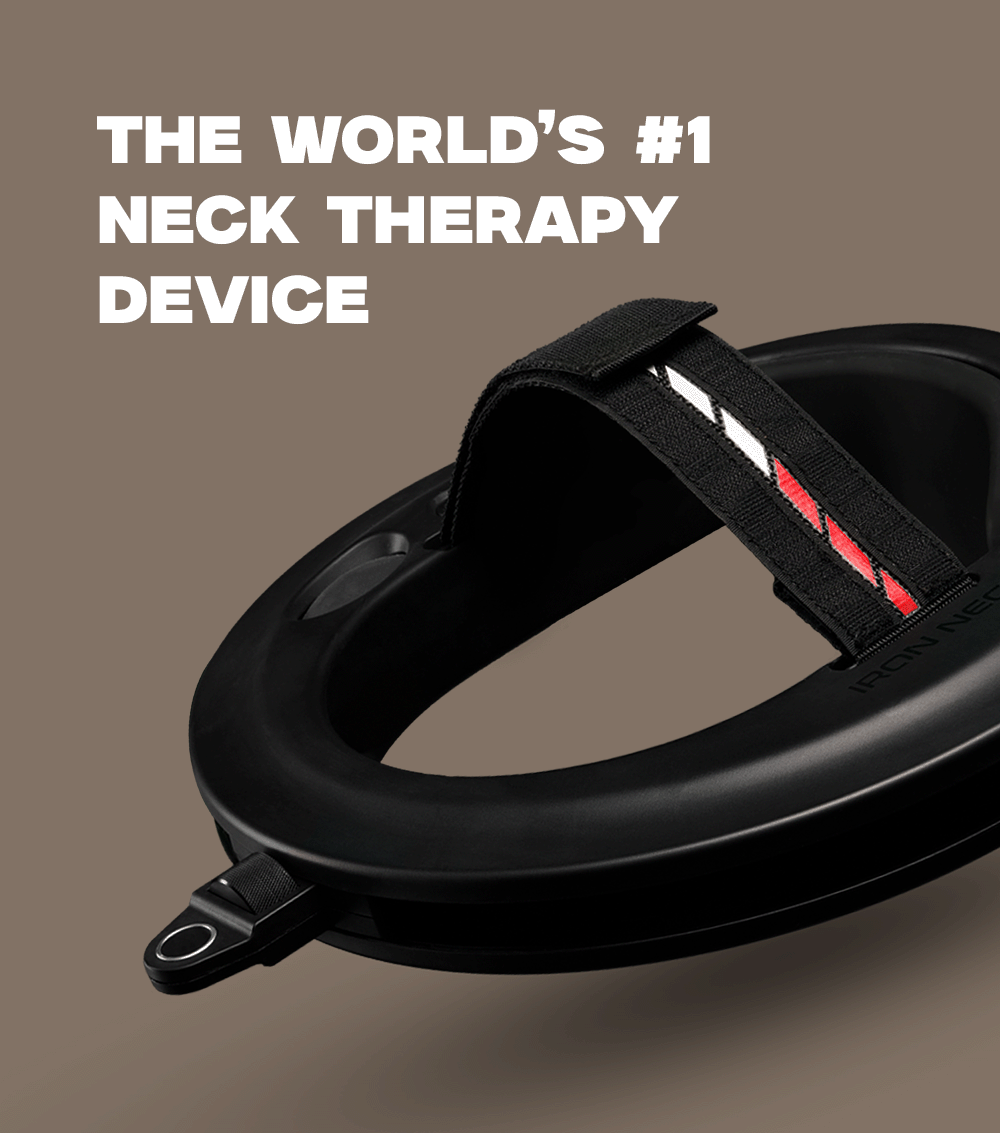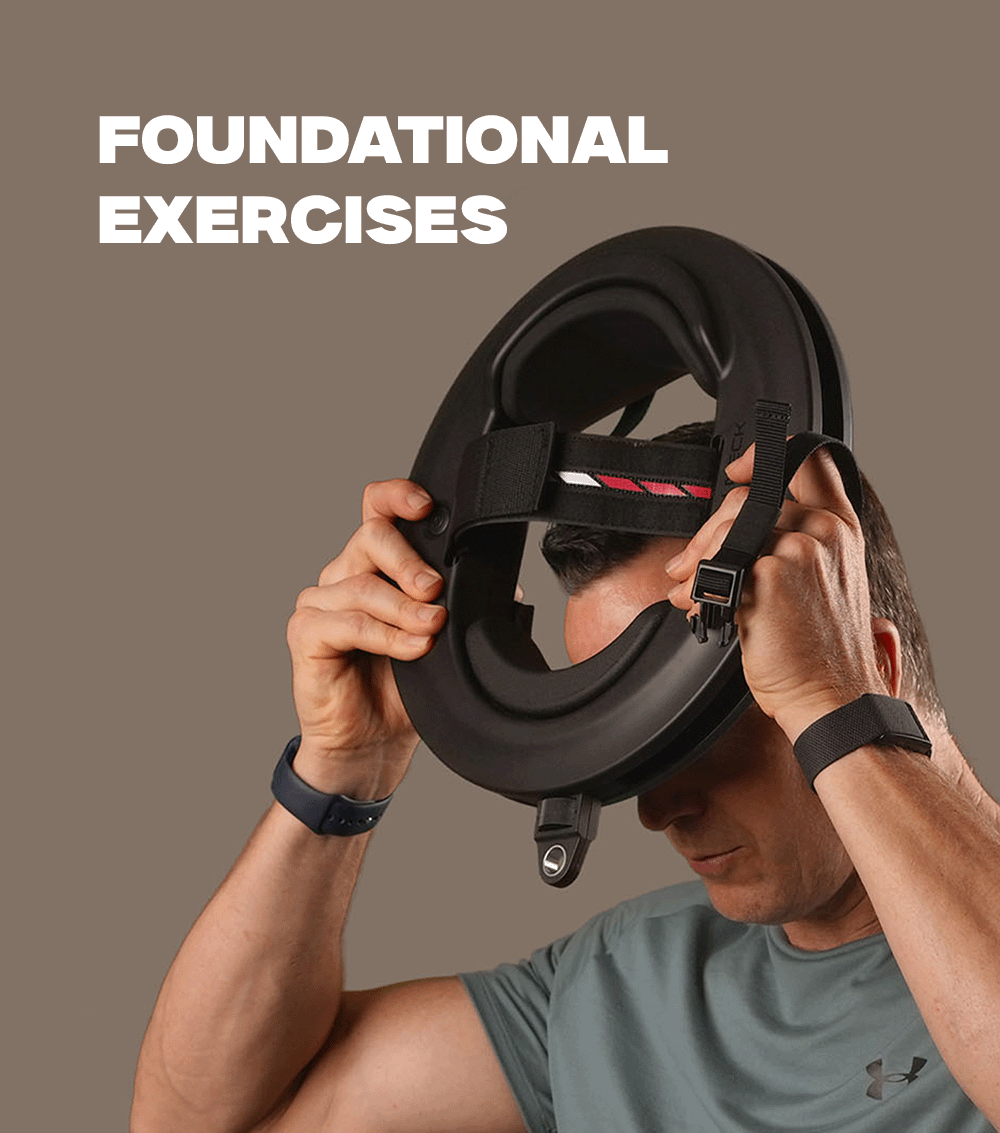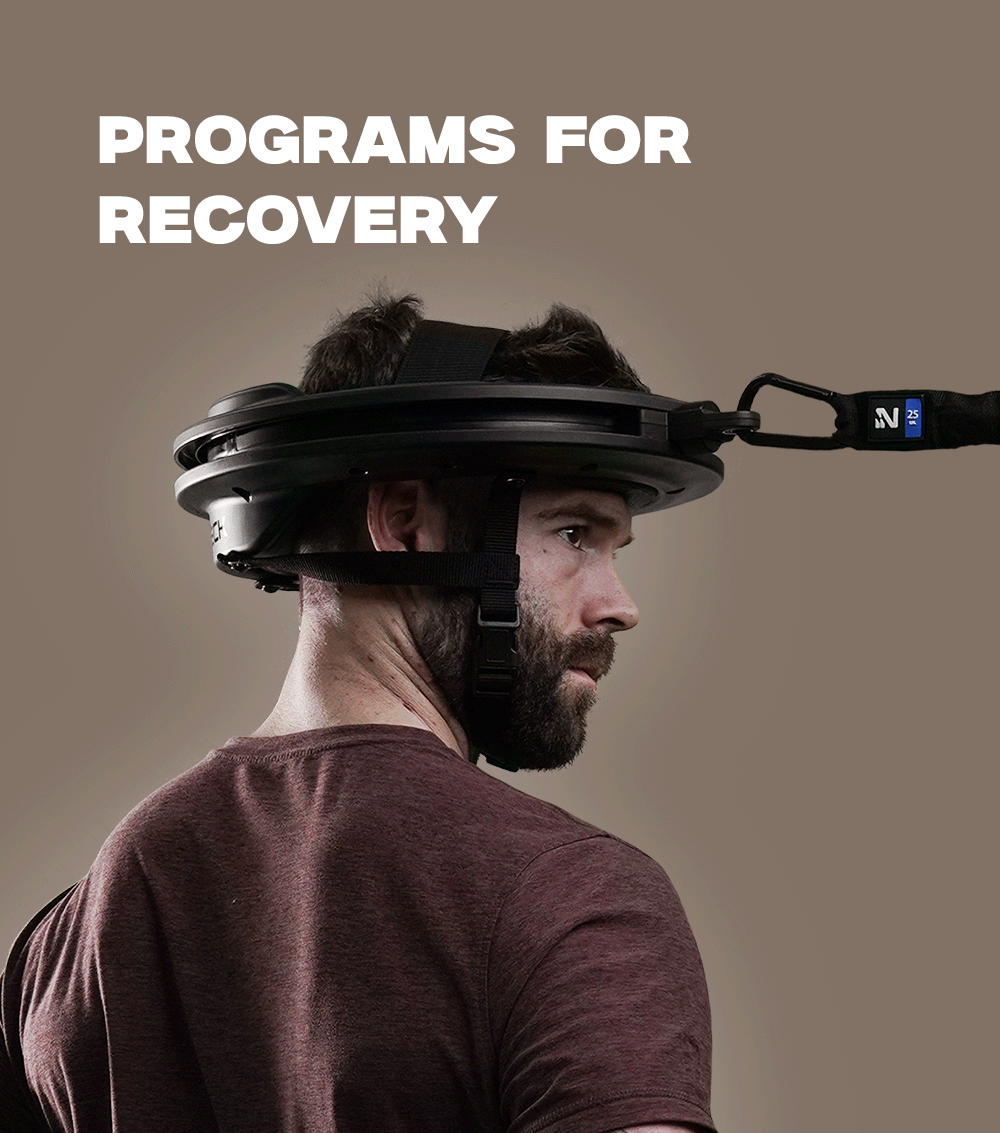If you've been struggling with pain in your neck accompanied by feelings of dizziness, you are likely wondering if the two are related. Can neck problems cause dizziness? Don't be surprised if you ever experience pain in the neck paired with dizziness. Neck pain and dizziness often go hand in hand. This ailment can be worrisome and unsettling. The good news is we're here to help. In this article, we've included everything you need to know about neck-related dizziness—from the different causes to the best course of treatment. But did you know that there's actually a name for this neck-related dizziness? Let's start by defining cervical vertigo.
What Is Cervical Vertigo?
Cervical vertigo is a condition caused by several neck-related issues that makes a person feel as if the world is spinning. The muscles and joints in the neck contain various receptors that send signals to the brain, eyes, and inner ear, also known as the vestibular system. The vestibular system is partly responsible for our eye movement, coordination, and balance. It informs the brain about the relative position of the head to one's surroundings. When the vestibular apparatus malfunctions, it sends inaccurate information to our brains, resulting in cervicogenic dizziness.
The Symptoms of Cervical Vertigo?
Cervical vertigo doesn't just give you feelings of dizziness. There are several other symptoms that might accompany your dizziness. These include:
- stiffness or pain in the neck
- nausea and vomiting
- loss of balance while walking, standing, or sitting
- ear pain and congestion accompanied by ringing and/or swishing sounds
- loss of vision or distorted vision when moving the head
- headaches
Try to avoid any rapid head movement when you're experiencing cervical vertigo, or your symptoms might get worse. Intense exercise or even something as simple as a sneeze can exacerbate your condition.
Diagnosing Cervical Vertigo
Cervical vertigo is a condition caused by several neck-related issues that makes a person feel as if the world is spinning. The muscles and joints in the neck contain various receptors that send signals to the brain, eyes, and inner ear, also known as the vestibular system. The vestibular system is partly responsible for our eye movement, coordination, and balance. It informs the brain about the relative position of the head to one's surroundings. When the vestibular apparatus malfunctions, it sends inaccurate information to our brains, resulting in cervicogenic dizziness.
What Causes Cervical Vertigo?
There are several causes of cervical vertigo—from poor posture to different neck injuries and diseases. We'll go through the most common below to help uncover the root cause of your cervicogenic dizziness.
Poor Posture
The main cause of cervical vertigo is the disruption of blood flow to the inner ear or brain stem. When you have poor posture, your neck muscles tighten up restricting the proper blood flow in your neck area. These days, more and more people suffer from poor posture—mainly due to technology. A majority of us have developed a forward head syndrome, also known as tech neck. This is due to the constant straining of our necks towards our computer screens and mobile devices. It has caused the muscles at the back of our neck to weaken and tighten over time. Fortunately, this can be cleared up with some neck posture exercises.
Cervical Spondylosis
Cervical spondylosis is a type of osteoarthritis that specifically affects the cervical spine. It's a bone disease that occurs due to the wear and tear of the spongy disc in between the vertebrae of your spine. Sadly, arthritis becomes more and more common with age. There are no cures for arthritis. But, there are certain treatments that can relieve the pain and cervical vertigo caused by the condition. We'll discuss them shortly.
Herniated Disc
A herniated disc presses against the nerves in your spine, which can cause severe pain. It's a common symptom of spondylosis, but it can also happen without spondylosis. Herniated discs usually occur in the lower back, but they can also occur in the cervical spine. A herniated disc in the cervical spine causes neck stiffness, pain, and cervical dizziness.
Whiplash
Whiplash is a neck injury that is caused by a forceful, sudden neck movement. Sometimes the head whiplashes back and forth, while sometimes the whiplash is side to side. Whatever the case, whiplash causes the muscles, tendons, and other connective tissues in your neck to over-extend and tear. This commonly occurs after collisions, such as car accidents, falls, or impacts to the head during close contact sports.
How Do You Treat Neck Pain & Cervical Vertigo?
It is important to know the underlying cause of your neck pain and dizziness when treating cervical vertigo. Fortunately for you, cervical vertigo rarely requires any surgical procedures to be treated. Below are the common treatments recommended for cervical vertigo. But before trying to treat your cervicogenic dizziness at home, consult your doctor. They will be the only ones to tell you which treatment is best for you. More than likely, you will be referred to physical therapy to treat this ailment if it doesn't clear up on it's own.
Medication
When you're experiencing neck pain and dizziness, your doctor is most likely going to prescribe you some over-the-counter painkillers, such as ibuprofen or acetaminophen. They may also prescribe anti-dizziness medication, such as Antivert, but some may prefer not to as it may limit the brain's natural ability to adapt to new conditions. That may very well lead to medication dependency.
Massages
If your cervical vertigo isn't caused by a neck injury and is more of a postural issue, then a gentle massage may do the trick to get rid of your dizziness. Massages can help release tension in your neck and upper back muscles, which will encourage blood flow into those areas. More blood flow into those areas means more blood flow to the inner ear and brain stem, dampening the dizzying affects you feel.
Chiropractor
Similar to massages, going to a chiropractor can be very beneficial for neck pain and other spine issues. Misalignments in your body's joints can send the wrong information about your body's position and movements to your brain. Cervical chiropractors are great in realigning the joints in your spinal cord, specifically in the neck area. By doing so you can achieve relief from your vertigo.
Physical Therapy
Physical therapy is advised for anyone with cervical vertigo, whether caused by a neck injury or not. It is a safe and effective way to readjust your body and strengthen your muscles as well. Physical therapy usually comprises different stretches and light exercises that aim to help you achieve and restore a full range of motion in your neck muscles and the surrounding connective tissues and joints in your neck area.
Why Neck Training Is Important For Treating Cervical Vertigo
Out of all the parts in the human body, the neck is the most undertrained. And yet, it does so much work. The neck is responsible for carrying the weight of the head, absorbing shock from impact, and keeping the body in balance. Due to bad posture, neck muscles commonly become weak. This increases the likelihood of pain and injuries that lead to conditions such as cervical vertigo. If you want to improve your posture, get rid of chronic pain and vertigo, and reduce the risk of future neck injuries, then you should start training your neck. Neck training is similar to training any other part of your body. It requires consistency and a variety of exercises to really target all the muscles in your neck.
If you aren't sure how to start training your neck, we have a complete guide on neck training, where we share our favorite neck rehab exercises. Your doctor will most likely recommend neck training for treatment. But you should still continue neck training after your vertigo is treated. Neck training is not just treatment but a form of prevention too. The stronger your neck gets the less likely you'll experience chronic pain (1,2) and vertigo. Plus, the chances of you getting injured get lower too (3,4). But before you can start training your neck, you will need certain equipment. If you want to know more about where you can find all the best neck training essentials, we know just the place.
Get Rid of Neck Pain & Cervical Vertigo With Iron Neck
If you want to treat your stiff neck, pain, and dizziness, you have to start training your neck. Neck training is the best type of physical therapy for the cervical spinal cord. And there's no better way to train your neck than with the world's number one neck training equipment—the Iron Neck. The Iron Neck is a one-of-a-kind neck strengthening and neck rehabilitation device. It was designed to be able to target every joint and muscle in your neck area, resulting in a greater range of motion, less pain, stiffness, and dizziness. The Iron Neck can help you develop isometric, eccentric, concentric, rotational, and anti-rotational strength.
You can use the Iron Neck alone at home or with the help of your physical therapist. Plenty of physical therapists use the Iron Neck to rehabilitate injured necks, but of course, it can also be used for cervical vertigo treatment and prevention. We understand that the Iron Neck is pricey, but neck training is still essential. If the Iron Neck doesn't fit your budget, we also offer other effective neck manual therapy equipment for a more affordable price. We sell neck weight harnesses, resistance loop bands, and resistance bars that can also help strengthen your neck muscles and improve your vertigo. The resistance equipment can even be used to train other parts of your body. So, what are you waiting for? Grab your very own Iron Neck today and get rid of that pain in your neck and dizziness.






